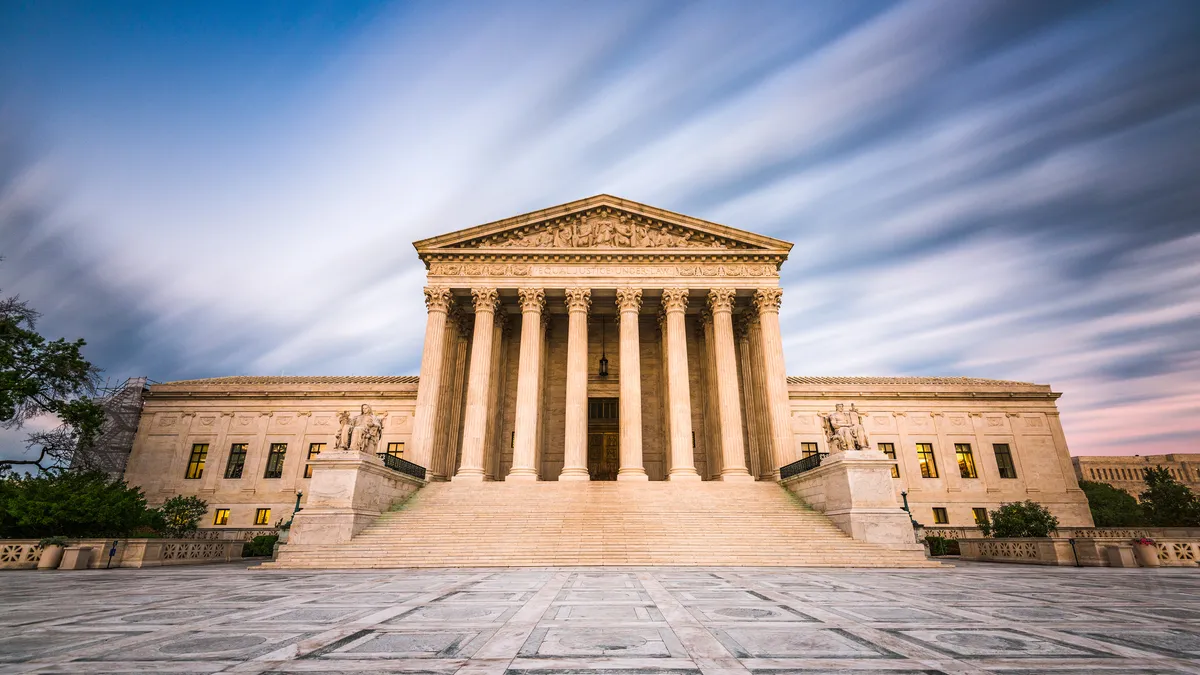Amazon announced on May 3 that it would cover up to $4,000 in travel expenses for staffers pursuing non-life-threatening medical treatments, including abortion. This news comes less than 24 hours after Politico leaked a draft of a SCOTUS opinion effectively striking down Roe v. Wade.
This benefit applies if a procedure is not available within 100 miles of an Amazon worker’s home and virtual care is impossible, Amazon said in a message obtained by Reuters.
All U.S. employees enrolled in Premera or Aetna insurance and their dependents will be able to take advantage of Amazon’s offer, according to Reuters, which also applies to procedures like substance use disorder services and cellular gene therapy.
The e-commerce company’s decision comes on the heels of a leaked SCOTUS opinion regarding Dobbs v. Jackson Women’s Health Organization heard December 2021.
Mississippi’s Gestational Age Act, passed in 2018, prohibits most abortions after 15 weeks of gestation. Jackson Women’s Health Organization, the only legal abortion clinic in the state, filed a lawsuit in response to the bill and requested an emergency temporary restraining order. The clinic’s argued that Mississippi could not prove that a fetus would be viable after 15 weeks of gestation and SCOTUS precedent prohibits states from banning abortions prior to viability.
The leaked opinion on this case, written by Justice Samuel Alito, indicates a majority vote to overrule Roe v. Wade (1973) and Planned Parenthood v. Casey (1992). Per Alito’s recommendation, this ruling would put the issue of abortion back under the purview of state governments.
Amazon is far from the first major player to announce abortion travel coverage in response to rekindled conversations around reproductive health policy.
On the heels of Texas’ anti-abortion policy (S.B. 8) enactment, which the state Senate passed in May 2021 and enacted in September 2021, Salesforce offered to relocate its employees based in Texas as well as their families.
Ahead of its annual meeting on April 26, 2022, Citigroup said it would cover employee travel to access “adequate resources” in light of shifting reproductive health policy within the U.S. This announcement ruffled feathers, leading Republican lawmakers to champion a U.S. House of Representatives boycott of Citigroup.
Shortly after, Lyft and Uber announced they would cover the fees of Oklahoma drivers facing legal repercussions for transporting pregnant passengers to abortion clinics.
Additionally, Yelp joined Apple and Levi Strauss in covering travel costs for employees seeking reproductive care. The review platform company already offered health insurance that covered employees’ abortions, but the new policy, publicized in April 2022, extended the coverage to include travel.
Yelp also reportedly double-matched employee contributions to abortion rights organizations and since 2018, had tweaked its algorithm to deprioritize reproductive health clinics dissuading pregnant people from abortions.
As the precedent for covering abortion-related travel expenses continues to spread, what does the leaked SCOTUS ruling mean for employers and their benefits managers?
Well, the ruling likely won’t be finalized and officially announced until June, which marks the end of a SCOTUS term and is the time of year when justices historically publish their most important decisions. If leaders do want to offer funding for their employee’s abortion travel, they can start preparing by reviewing abortion access maps.
Using data from the Guttmacher Institute, Planned Parenthood’s interactive map indicates which states will protect abortion rights in the event that Roe v. Wade is struck down, which states have restrictions on the books, and details on what those barriers to access look like.
In terms of weeks of pregnancy and waiting periods after state-mandated counseling, Texas, Missouri and South Dakota have particularly harsh laws. Most states categorized as “restrictive” cap abortion access at 20 weeks and have a 24-hour waiting period between receiving counseling and obtaining an abortion: Georgia, Kentucky, North Dakota, Ohio, South Carolina and West Virginia. In turn, Texas caps abortion access at 6 weeks. Alabama and Tennessee require a 48-hour waiting period; Missouri, Oklahoma and South Dakota mandate a 72-hour waiting period.
Employers looking to champion their pregnant employees will have to wait and see what SCOTUS finally rules. But, as is the case with any workplace policy change or benefits roll-out, HR teams can only gain from early preparation.
Correction: A previous version of this article incorrectly identified Yelp’s efforts to champion abortion access. Yelp double-matched employee contributions to abortion rights organizations.





















